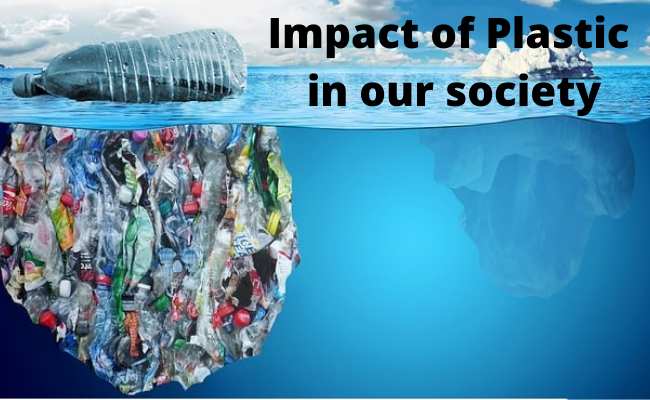Plastic Phantom
It is uncertain how humans will fare over the next decade. But as the climate is shifting and experiencing water and food shortage, we can be sure of one thing that even if there was an apocalypse, there would be no shortage of plastic. The stability of plastic prevents itself from chemically breaking down.
For the most part, it breaks down into smaller and smaller pieces of itself before becoming- a micro plastic- no larger than five millimetres in length.
These micro plastics easily pass through water filtration system and end up in the ocean which become a threat to aquatic life. The problem is so rampant that over 70% of the marine animals have ingested plastic. Additionally, traces of plastic have been found in bottled water.
It is evident that we have bought ourselves into the ‘Era of Plastics’ and it is through applied science and clever engineering that this problem can be reverted.
Will plastic ban really help in reversing the situation?
Global consumption of plastic has only increased over the years. India alone generates 9.46 million of plastic waste. India has committed to eliminate single use plastic by 2022 but the real challenge is to rethink the economics of plastic as an alternative or complimentary to the ban.
This calls for building a cost effective plan for recycling and re-using it. The banning of plastics alone, cannot help in reversing the damage. However, it can be controlled only through extensive consideration and meticulous planning.
Can global corporations like Coca-Cola be blamed for our waste crisis?
Environmental pollution is no longer an ethical issue that can be side-lined as Corporate Social Responsibility. The role of business in addressing this crisis has become a matter of fierce debate. For companies, the packaging has always been about maximising profit.
Once they are sold and profits collected, corporations disappear leaving the work of disposal to the people who bear the toxic consequences of pollution.
Campaigners and activists say that these companies should do more to ditch single use plastic, cut down the usage of plastic packaging and stop customers from taking plastic bags.
While there is Corporate Social Responsibility to address various forms of pollution, these commitments are weak and the corporations are completely absent from the clean-up narrative.
“Greenfection. Catch it. Spread it.” – An initiative by Tata Steel
JUSCO, a subsidiary company of Tata Steel which maintains and provides municipal services in Jamshedpur has set an exemplary example by becoming the first in eastern India to use plastic to make roads.
They used bitumen technology (plastic, biscuit packets, poly bags and such others) to construct roads. JUSCO has constructed 12-15 km roads in the steel city as well as widened 22 roads using the technology.
However, there is no single masterstroke to counter the staggering plastic waste management, globally. The time has long arrived where robust and inclusive National Action Plans need to be created and implemented.
The scientists have claimed that if there is no change in plastic consumption habits, they will continue to get dumped in the oceans and by 2050, there will be more plastic in the sea than fishes.
